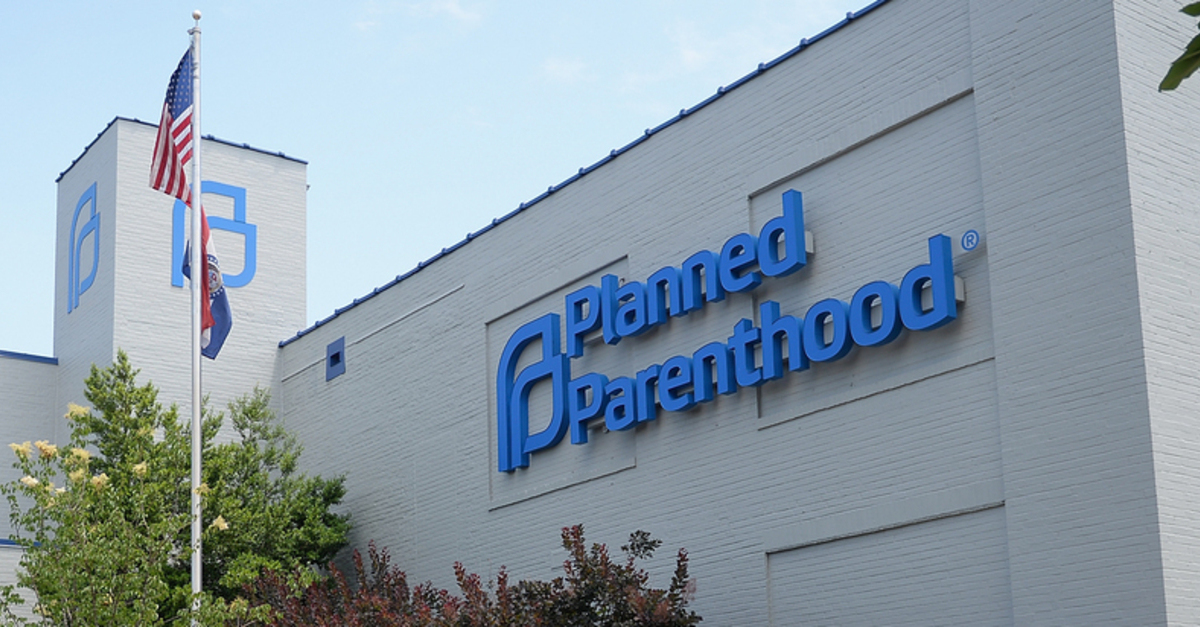
U.S. District Judge Kristine Baker ruled against a restrictive new Arkansas abortion law Tuesday. In the judge’s lengthy ruling, Baker, a Barack Obama appointee, reasoned that “pre-viability abortions are categorically unconstitutional,” and issued a preliminary injunction against its enforcement. The statute had been set to take effect on July 28.
The law in question is the Arkansas General Assembly’s Act 309 of 2021, which prohibits all abortions. It was passed by the Republican-led legislature and signed into law by Republican Governor Asa Hutchinson. The sole exception permitted under the statute is an abortion performed “to save the life of a pregnant woman in a medical emergency.” Furthermore, the act imposes criminal penalties on anyone who performs or attempts to perform an abortion of a fine up to one hundred thousand dollars, and imprisonment up to 10 years.
In May 2021, Little Rock Family Planning Services and Planned Parenthood Great Plains, along with doctors and staff, sued for a declaratory judgment on the grounds that the law was an unconstitutional violation of individual liberty.
The Act itself makes clear that it is aimed directly at the Supreme Court of the United States, created specifically to give the Court a chance to overturn Roe v. Wade. The text reads:
The State of Arkansas urgently pleads with the United States Supreme Court to do the right thing, as they did in one of their greatest cases, Brown v. Board of Education, which overturned a fifty eight-year-old precedent of the United States, and reverse, cancel, overturn, and annul Roe v. Wade, Doe v. Bolton, and Planned Parenthood v. Casey.
Judge Baker’s ruling noted some important facts and statistics about abortion. “Legal abortion is one of the safest medical procedures in the United States,” Baker wrote, “and is far safer than continuing a pregnancy through to childbirth.” “A person’s risk of death associated with childbirth,” she continued, “is approximately 14 times higher than that associated with abortion.”
The judge went on, laying out the contrast between the Act’s stated purpose of creating health benefits and its likely effect:
Being forced to continue a pregnancy against one’s will can pose a risk to a person’s physical, mental, and emotional health, and even their life, as well as to the stability and wellbeing of their family, including existing children.
Even for someone who is otherwise healthy and has an uncomplicated pregnancy, being forced to carry that pregnancy to term and give birth poses serious medical risks and can have both short and long-term consequences on physical health and mental and emotional wellbeing. For someone with a medical condition caused or exacerbated by pregnancy, these risks are increased.
Moreover, the court detailed the disproportionate impact abortion bans have on Black people:
In 2019, Black people made up just over 15% of Arkansas’s population, but more than 46% of people who obtained abortions in Arkansas were Black. Black women die of maternal mortality at almost two times the rate of white women.
The judge ruled that an injunction was appropriate given that the law’s challengers would likely win on the merits of their underlying lawsuit, as well as the irreparable harm caused by imposing criminal penalties on doctors who might perform abortions.
Alexis McGill Johnson, president and CEO of Planned Parenthood Federation of America, called Tuesday’s decision, “a win for Arkansans.” In an email statement, Johnson continued:
When state politicians across the country attack abortion access, we fight back. While we welcome this ruling that affirms our patients’ right to safe, legal abortion, we also know the work continues. We won’t stand for these relentless attacks on our basic rights and freedoms that target women, people of color, people with low incomes, and LGBTQ+ people. Planned Parenthood remains focused on its patients and committed to ensuring that everyone has access to sexual and reproductive health care in Arkansas, and across the country.
In an emailed statement, Arkansas Attorney General Leslie Rutledge (R) said she was “disappointed in today’s decision by Judge Baker,” and, “will be reviewing it to consider the appropriate next step to protect the life of the unborn.”
Read the full ruling here.
Editor’s Note: This piece was updated from its original version to include comment from the Arkansas Attorney General.
[image via Michael Thomas/Getty Images]